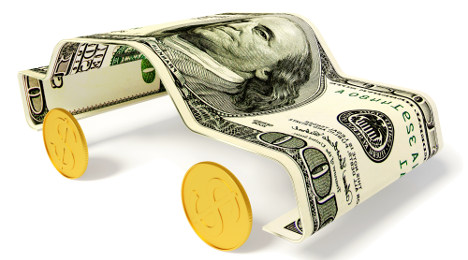Moody’s: Smaller lenders pulling down subprime auto ABS performance

By subscribing, you agree to receive communications from Auto Remarketing and our partners in accordance with our Privacy Policy. We may share your information with select partners and sponsors who may contact you about their products and services. You may unsubscribe at any time.
NEW YORK –
Moody’s Investors Service not only spotted the trend but pinpointed seven different finance companies that might be causing the softening performances in U.S. subprime auto asset-backed securities during the past few years.
Analysts indicated in a report released on Thursday that a growing number of transactions from smaller finance companies that cater to weaker-credit borrowers — in combination with looser underwriting — has resulted in higher aggregate net losses.
“Any measurable weakening in pool performance does, however, relate to specific lenders and transactions, and loan pools from the larger subprime lenders continue to perform within the rating agency's expectations,” Moody’s said.
Analysts explained that low losses on loan originations from 2010 and 2011, along with low interest rates that kept the cost of funds down, meant higher profits, which enticed new finance companies into the auto ABS market.
As these finance companies have competed for customers, Moody’s asserted that underwriting in the subprime auto finance market has weakened, though slowly, with “favorable” economic conditions helping to offset any resulting deterioration in overall loan performance.
"Since 2010, issuance of U.S. subprime auto ABS has shifted to include an increasing number of transactions from lenders that cater to borrowers with weaker credit scores,” Moody’s vice president and senior analyst Peter McNally said.
Subscribe to Auto Remarketing to stay informed and stay ahead.
By subscribing, you agree to receive communications from Auto Remarketing and our partners in accordance with our Privacy Policy. We may share your information with select partners and sponsors who may contact you about their products and services. You may unsubscribe at any time.
“As a result, a greater proportion of the loans in ABS pools have incurred losses, and the average loss rate for U.S. subprime auto ABS deals has risen,” McNally continued.
Moody’s then went on to mention specific institutions.
The report claimed Global Lending Services, GO Financial and Skopos Financial issued their first transactions during 2015, all with “relatively high” early losses.
Moody's added that other sponsors of transactions with “relatively high” losses also include DriveTime Automotive, American Credit Acceptance, United Auto Credit and CarNow Acceptance.
“The risks from deteriorating transaction performance would hit primarily smaller lenders that have fewer resources to manage rising numbers of problems loans, which would exacerbate performance weaknesses and could even threaten their solvency,” analysts said.
Meanwhile, the report mentioned the vehicle installment contract pools in most Moody’s-rated auto ABS transactions continue to perform within expectations, particularly those from AmeriCredit and Santander Drive, the two largest U.S. sponsors.
But analysts pointed out that the number of contracts from AmeriCredit and Santander Drive has fallen to just over 20 percent of total transactions today, down from more than 70 percent in 2010.
Moody's isn't the only firm to discuss the decline in subprime auto ABS performance. Last month, Fitch Ratings pointed to three reasons why delinquencies on U.S. subprime auto ABS have eclipsed 2009 recessionary levels and are now at a level not seen in nearly two decades.


